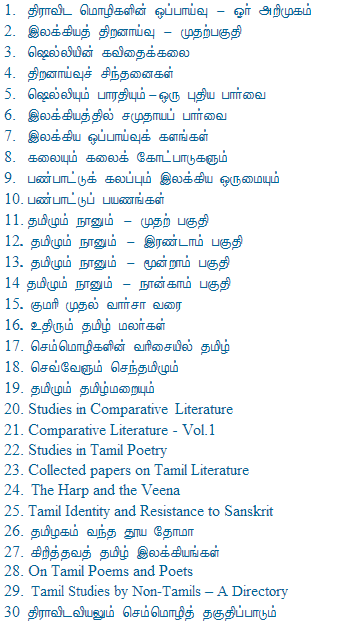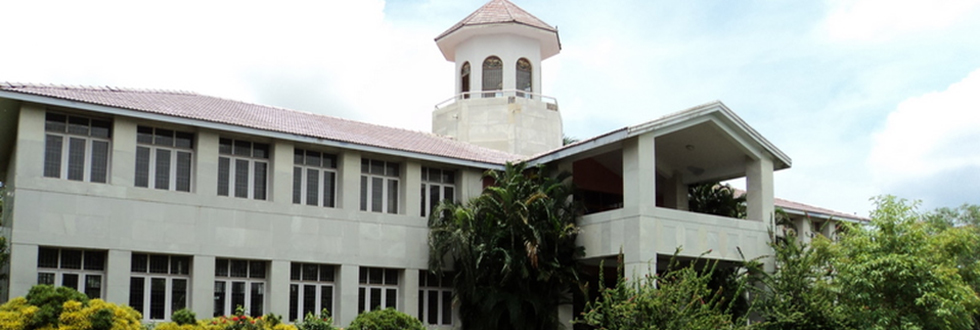 Born in 1948 in Neyoor, Kanyakumari district, the southern most tip of Indian peninsula, Dr. John Samuel, the Founder Director of the Institute of Asian Studies, spent the whole of his younger days there, engaged in various public activities in addition to his studies. He did his Masters in Tamil literature at Annamalai University and later on in English literature at Madurai Kamaraj University. He joined the American College as an Assistant Professor of Tamil in 1970 and later moved to the International Institute of Tamil Studies in Chennai in 1974 to focus more on academic research rather than on teaching. Born in 1948 in Neyoor, Kanyakumari district, the southern most tip of Indian peninsula, Dr. John Samuel, the Founder Director of the Institute of Asian Studies, spent the whole of his younger days there, engaged in various public activities in addition to his studies. He did his Masters in Tamil literature at Annamalai University and later on in English literature at Madurai Kamaraj University. He joined the American College as an Assistant Professor of Tamil in 1970 and later moved to the International Institute of Tamil Studies in Chennai in 1974 to focus more on academic research rather than on teaching.
He did his Ph.D., in Madras University in Comparative literature- A comparative study of P.B. Shelley, the English Romantic poet and Subramania Bharati. He has authored 30 books in English and Tamil on various aspects of the Dravidian languages, literatures and cultures. He has edited more than 150 rare books which include reference works of great magnitude such as Encyclopaedias, Descriptive catalogues and Multi-lingual dictionaries. He is the Chief editor of the prestigious ten volume project, Encyclopaedia of Tamil literature in English language and the reputed Journal of the Institute of Asian Studies (JIAS).
He received the best author award by the Govt. of Tamilnadu in the year 1980 for his unique study in Tamil on Shelley and Bharati. Started as a scholar of Dravidian languages, the scope of the academic research of Dr. John Samuel expanded in due course and it embraced various aspects of academic pursuits connected with Dravidology. His first book on Dravidian languages published at the age of 26 saw eight editions till date.
Dr. John Samuel founded the Institute of Asian Studies in the year 1982 along with his Japanese student Dr. Shu Hikosaka and this centre has blossomed into one of the unique organizations of South Indian Studies with a wider global perspective. Dr. John Samuel has been nominated as a member of the Senate of the Tamil University in the year 1984 by the Governor of Tamilnadu. He was nominated as a member of the Tamil Development Council by the Govt. of Tamilnadu. He was also nominated as a member of the International Advisory committee of the UNESCO for its unique project namely Memory of the World. The lecture given by him in the UNESCO Conference held in Warsaw, Poland on the preservation and conservation of the Manuscript heritage of India is indeed one of the unique achievements in his career.
Dr. John Samuel has interaction with many of the leading Indological scholars all over the world. He travelled extensively almost all the important countries of the world and delivered lectures on various aspects of the Tamil heritage. He trained a number of foreign scholars in Tamil language, literature and culture and guided the Ph.D., dissertations of many foreign scholars. He has organized six international conferences in India, Mauritius, Malaysia and USA ( New York) in addition to many numbers of seminars and workshops at the national and regional levels. He is one of the pioneers in creating awareness about the preservation of the rich heritage of Tamil palm-leaf manuscripts. He was also instrumental in the development of comparative literature as a very respectful academic discipline in Tamilnadu. He has initiated academic programmes at the international level on Early Christianity in India and the cultural heritage of the Tamil diaspora spread in various countries.
The role played by Dr. John Samuel in the classical status accorded to Tamil language by the Govt. of India is indeed very significant. He has drafted the report for this recognition on behalf of the Govt. of Tamilnadu in the year 1996 and his report has formed the basic document for the recognition of Tamil language as one of the Classical languages of India. He is presently engaged in the creation of an international centre in Kanchipuram for Bodhidharma, a Tamil Buddhist monk who went to China in 6th C. A.D and founded the Chan School of Buddhism which has became the Zen Buddhism in Japan, Korea and Vietnam. His other project is the establishment of a Tamil Culture Centre near Pondicherry as an integral part of the Institute of Asian Studies. He is ably assisted by his wife Mrs. Indra Samuel and his daughter Ms. Sheba Samuel in all his academic activities.
Dr. T. Wignesan from France writes about this great builder of the Institute of Asian Studies as follows: “Nothing can convey the extent of the vision of one man, the Founder-director of the Institute of Asian Studies, than the vast open spaces of the Chemmancherry campus……… the lasting foundations of a Tamil and Dravidian « kingdom of learning » are being laid, pebble by boulder, by the hour. One man’s vision spans this domain; one man’s indomitable will raised this solitary monument as a homage to the Tamils and Dravidians’s glorious ancient past…… And, today, after what seems like innumerable lavish and daring intellectual projects: conferences, seminars, publications and academic collaborations, no individual anywhere has come to represent the authentic Tamil Voice as this fearless Methodist. He’s untiring, ubiquitous, enterprising, eclectic, and never rests on his laurels, a true meneur d’hommes. To think that in 1982, he and Shu Hikosaka founded the IAS on a shoestring budget, but happily also based on a no-nonsense achievers' psychology and will power, becomes quite plain now to those used to « standing and staring », even if they, too, might serve in their own characteristic way.
To get a more intimate feel of how the idea of the Institute was hatched and of the trials, hitches and glitches both Samuel and Hikosaka went through, one needs to peruse the four autobiographical volumes by the former, titled: Me and Tamil (Tamilum Nanum)……… To me, the “Institute”, as the IAS has come to be known among the locals and the foreign “interactors”, is the lieu par excellence where the philosophy of co-operative effort spelt out by its founder-director is played out: not necessarily its many research programmes and the corresponding publications which have come to represent the sum total of its tangible achievements. I’m by no means trying to belittle these overt and evident fruits of years-long labours by self-sacrificing savants riveted to their tasks at the Institute’s spare workshops. Yet, the good many research programmes and collective publications instituted by the founders constitute an abundant academic production, in no way equalled by any other similar institution in the region. One thing, however, is certain: no where in the world mutatis mutandis has there been such an effort to investigate and bring to light such an amirthacurappi or cornucopia of Tamil and/or other Dravidian cultural heritages, that is, Southern Indian arts and archaeology, history and health sciences, literatures and languages, religions and records”.
The following are the books written and published by Dr. G. John Samuel.

|
